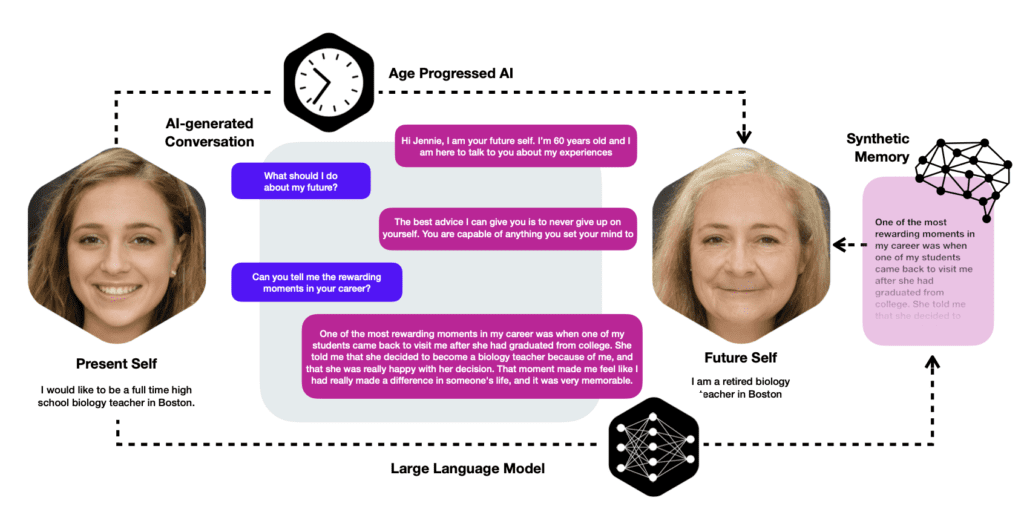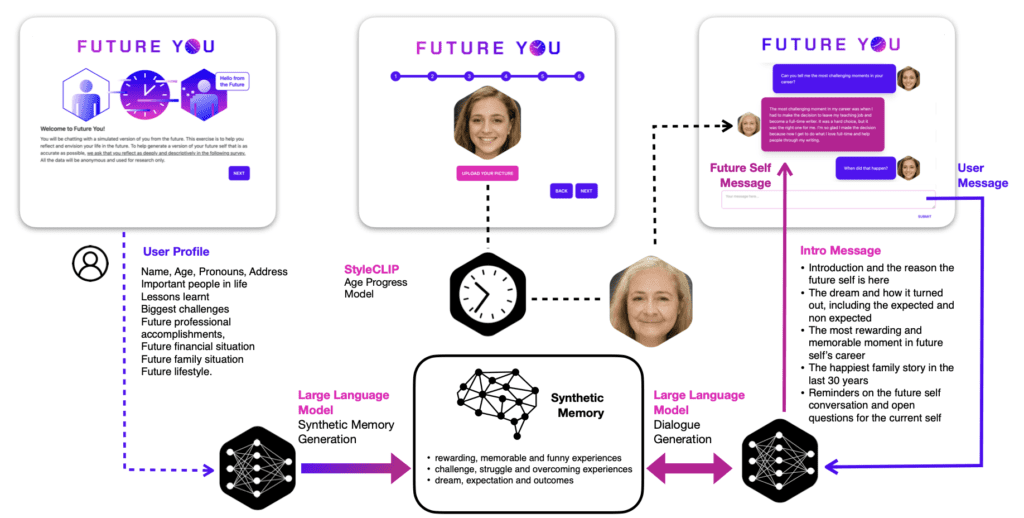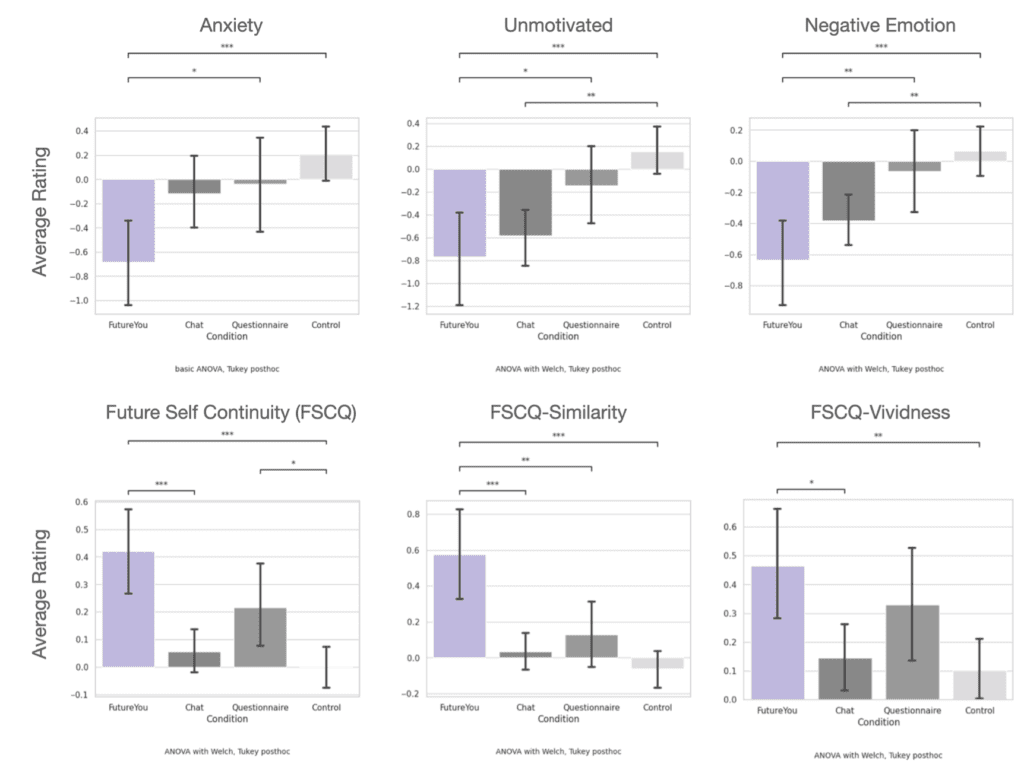Interactive Conversations with AI-Generated Future Selves Enhance Mental Health
- AI-Powered Future Self: The “Future You” intervention uses AI to create a realistic, interactive conversation with a future version of the user.
- Mental Health Benefits: Users reported decreased anxiety and negative emotions, and increased connection to their future selves.
- Accessibility and Ease: The digital, web-based nature of the intervention makes it widely accessible and user-friendly, without the need for specialized equipment.
In a groundbreaking study, researchers have introduced “Future You,” an interactive, AI-driven digital chat intervention designed to enhance future self-continuity—a key factor in mental health and wellbeing. This innovative system allows users to engage in a conversation with a virtual version of their future selves, leading to significant mental health benefits, including reduced anxiety and increased connection to their future self.

The Concept of Future Self-Continuity
Future self-continuity refers to the degree of connection an individual feels with their future self. High future self-continuity is associated with better mental health, improved saving behavior, academic performance, and overall quality of life. Traditionally, interventions aimed at enhancing this continuity have involved methods like letter writing, method acting, and virtual reality simulations. However, these methods often require significant effort and resources, making them less accessible to the general population.
Introducing “Future You”
“Future You” aims to overcome these barriers by providing a brief, real-time, web-based intervention. Users interact with a relatable, AI-generated version of their future selves, created using a large language model (GPT-3.5) and an age-progressed portrait. The system generates a “synthetic memory,” a unique backstory that links the user’s present self to their future self at age 60, enhancing the realism and relatability of the conversation.

Mental Health Benefits
The study found that interacting with the “Future You” character had several positive effects on users. After a brief interaction, users reported decreased anxiety and negative emotions, and a stronger sense of connection to their future self. This suggests that the intervention can effectively motivate and support users in envisioning and working towards their future goals.
Accessibility and Ease of Use
One of the major advantages of the “Future You” intervention is its accessibility. Unlike traditional methods that require VR headsets, method acting training, or extensive letter-writing exercises, this digital intervention can be accessed easily via a web platform. This makes it a convenient and practical option for a wide range of users.

The Future of AI in Mental Health
The success of the “Future You” intervention highlights the potential of AI-generated characters in improving mental health and wellbeing. By enabling users to vividly imagine and interact with their future selves, the intervention fosters healthier, future-oriented decision-making.
The “Future You” study represents a significant advancement in the use of AI for mental health interventions. By creating realistic, interactive conversations with a future version of the user, this novel approach helps reduce anxiety and increase future self-continuity. As technology continues to evolve, such AI-driven interventions could become a vital tool in promoting mental health and wellbeing, making them accessible to a broader audience.
Future Directions
The research team hopes that the success of “Future You” will inspire further studies in human-computer interaction (HCI) and the development of new interventions aimed at fostering future self-continuity and encouraging healthier decision-making. As AI technology continues to advance, the possibilities for its application in mental health and wellbeing are vast and promising.
